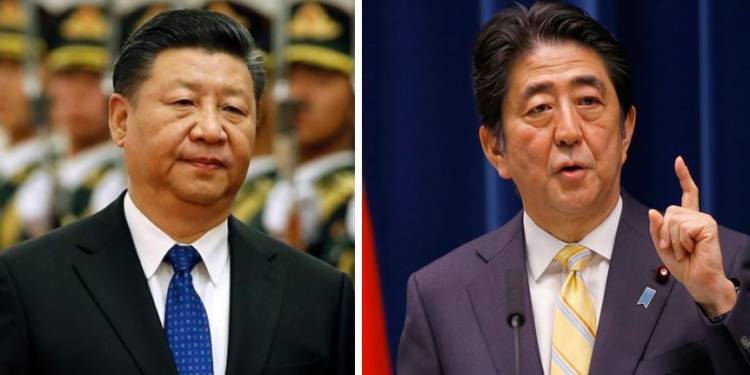After India banned 59 Chinese apps amid National Security concerns, more and more countries have started looking into the matter from the same perspective.
Now Japan, the arch-rival of China, is mulling over to ban Chinese social media apps as well Chinese developed banking systems that use artificial intelligence.
Liberal Democratic Party, the ruling party of Japan, has constituted a panel to probe risks to National Security due to Chinese apps. The panel would urge the government to introduce restrictions on Chinese apps based on its analysis.
Akira Amari, the group’s top official and the LDP’s tax panel chief, said that time has come to look into the matter from National Security perspective as Chinese companies do not store data locally. The United States is telling other democracies to look into the matter related to Chinese businesses from National Security perspective, added Akira Amari.
Japan has decided to go a step further and examine the threat posed by not only social media apps like TikTok but also the banking systems developed by Chinese companies which are very popular in Japan. Chinese officials avoided any comments on the issue. “The mutually beneficial cooperation between China and other countries is win-win,” said Chinese Foreign Ministry spokesman Wang Wenbin, adding that China didn’t “want to see any artificial damage to such patterns of cooperation.”
Previously, the legislators of the ruling Liberal Democratic Party have urged the Abe government to “reconsider” Chinese President’s state visit and drew up a draft resolution for the same. Two groups from ruling party submitted a resolution to Chief Cabinet Secretary Yoshihide Suga, in which they urged the government to “carefully reconsider” the visit by Chinese President and highlighted China’s human rights records; assertiveness around Japan’s Senkaku Islands; and the imposition of National Security Law in Hong Kong.
It was a well-known fact that Japan was not keen on inviting Xi Jinping, but the LDP went ahead with the resolution. It was done intentionally to send a stern message to China and humiliate it on a global level.
The lawmakers of the ruling party have taken a hard anti-China stance amid growing tension between the two countries over a range of issues including disputed Senkaku Island, which Japan fully integrated into the country a few weeks ago.
Moreover, in order to end China’s economic might, the Japanese government has told its companies to move their production bases out of China, and it is incentivizing the companies to do the same. Abe government had approved a stimulus package worth a whopping amount of 108.2 trillion yen (or $993 billion) – equal to 20 per cent of Japan’s economic output. It was to cushion the impact of the epidemic on the world’s third-largest economy. Out of the total amount, it has earmarked the US $2.2 billion to help its manufacturers shift production out of China.
So far, a total of 87 companies signed up with the Ministry to move manufacturing units out of China, with 57 moving back to Japan and 30 to different Southeast Asian nations like Vietnam, Thailand, and Laos.
As per the report, Hoya, which produces hard-drive parts, will move to Vietnam and Laos; Sumitomo Rubber Industries will make nitrile rubber gloves in Malaysia meanwhile Shin-Etsu Chemical will shift production of rare-earth magnets to Vietnam. The Japanese government would pay 70 billion yen (or $653 million) to these companies as an incentive for moving factories outside China.
The Japanese government has openly spoken on the complicity of the Chinese government in the spread of the Coronavirus disease. Now, Japan-China relations are at a stage where even state visit by the top leader is not possible.
The Coronavirus disease is all set to prove the final nail in the coffin of globalization, especially China-centric globalization. After the pandemic is over, the companies, as well as the workers, would avoid any business with China given the massive psychological resentment against the country due to the virus.
Apart from incentivizing the companies to move production bases out of China, countries like India, United States, Japan and Australia are kicking Chinese businesses out of their countries due to National Security threats posed by these companies.
China’s rise in the last few decades was due to its manufacturing prowess, but with the rise in income (China has become middle-income country with per capita GDP five times to that of India), labour is getting costlier, and the companies were already looking to relocate. The Coronavirus-induced recession would give them a final push to relocate to their own country or other countries with cheaper labour like India, Vietnam.
